Narrow Game 7 wins by the Boston Bruins and Dallas Stars finalized the NHL's second-round playoff matchups. These key questions will influence what happens in the next phase of the Stanley Cup chase.

Florida Panthers
Can Barkov and Forsling put clamps on Pastrnak?
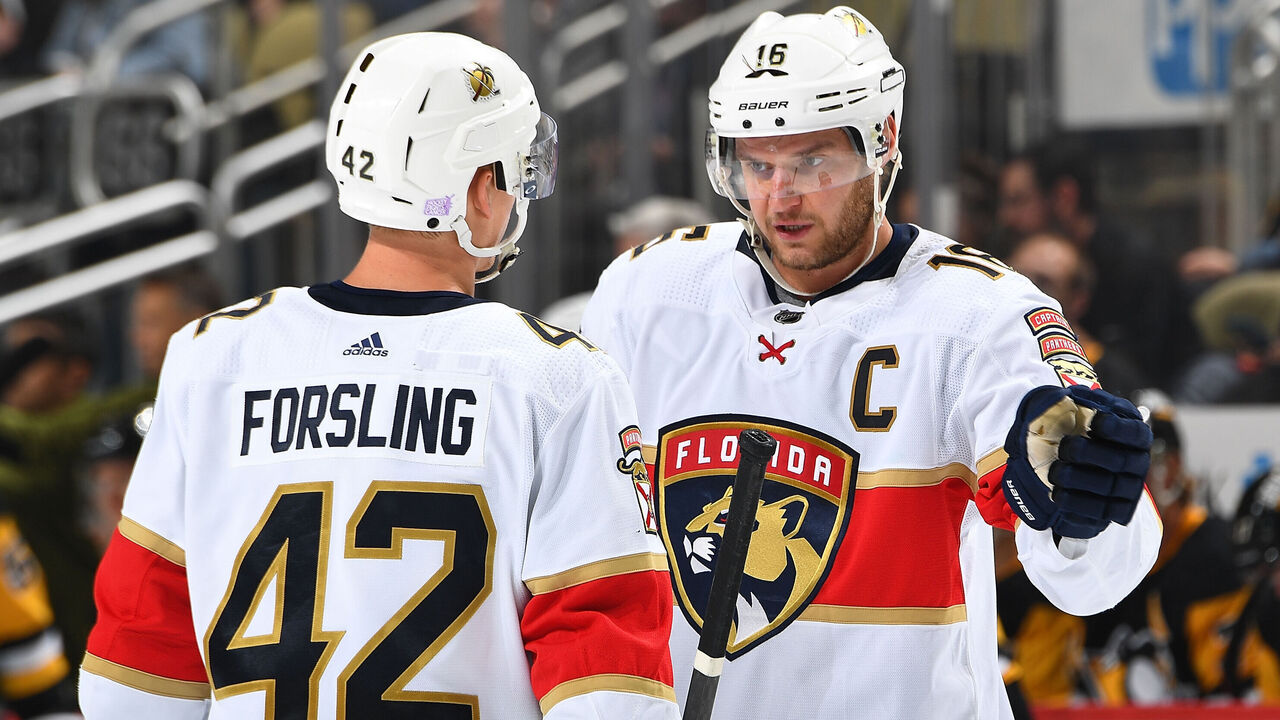
Florida scores and defends as well as anyone. The Panthers boast strong goaltending and special teams. On paper, they're much scarier opponents than the Bruins.
If the Panthers lose this series, it'll be because Sergei Bobrovsky gets outdueled by Jeremy Swayman; they can't convert on the power play (special-teams performance can be so hard to predict series to series); and/or they can't contain David Pastrnak, who's fresh off scoring in overtime of a Game 7.
Pastrnak is the element the Panthers have the most control over, and Florida has the personnel to limit him. No. 1 center Aleksander Barkov and No. 1 defenseman Gustav Forsling did a masterful job of holding Lightning superstar Nikita Kucherov to three five-on-five assists in the opening round. The Panthers' shutdown guys excel at knowing when to defend a star forward with brute physicality and when to use hockey IQ and stick work. They can frustrate stars to no end.
That said, Pastrnak shouldn't be discouraged entering Round 2. The Czech sniper scored five times in seven games in last year's Florida-Boston series, and the underlying data slanted heavily towards the Bruins during Pastrnak's five-on-five shifts. Florida will look to flip the script this time.
Boston Bruins
Can Coyle and Zacha make a significant impact?
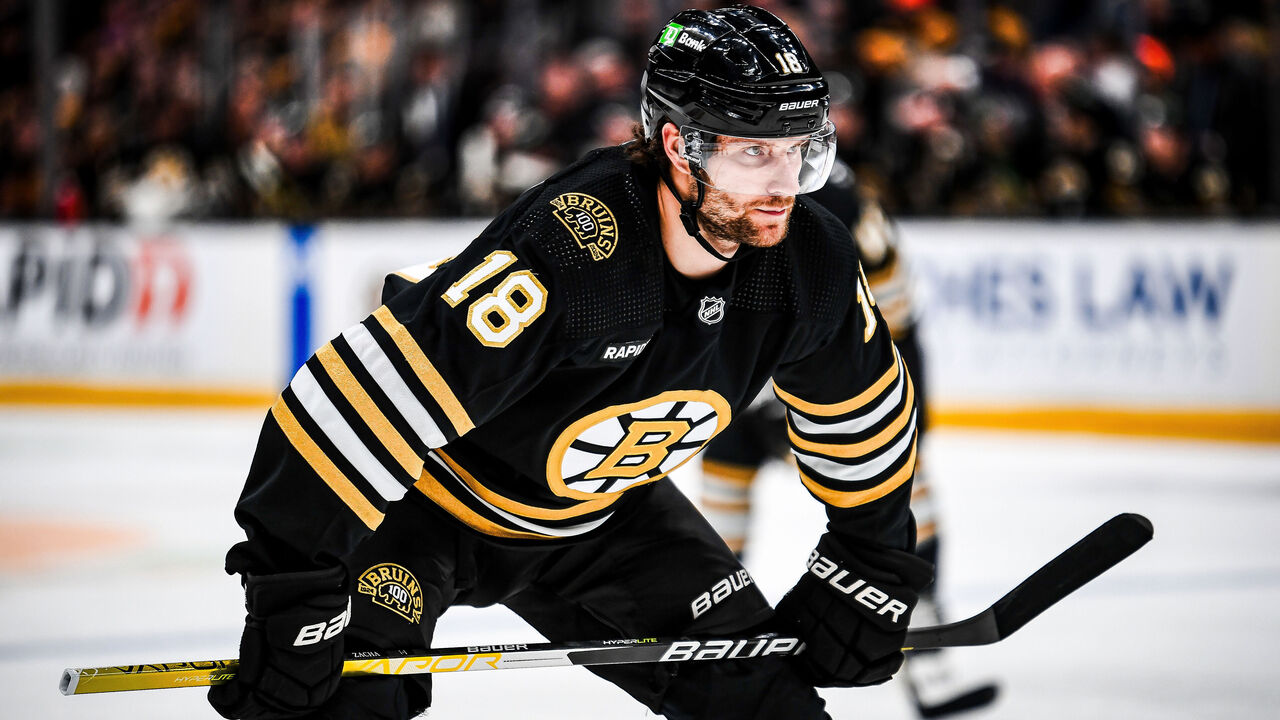
An interesting stat circulated on social media a couple of weeks ago: The Bruins' top centers, Charlie Coyle and Pavel Zacha, combined for 119 points in the regular season, which was five points clear of the combined total from the top centers in 2022-23, Patrice Bergeron and David Krejci.
Impressive, right?
Perhaps, but some context helped dispel the idea that the Bruins don't miss Bergeron and Krejci. The score was 101-76 when Boston's top centers were on the ice at five-on-five this year. Last year: 104-52. Sorry, the duo with a 67% goal rate is more impactful than the 57% one.
The first round offered additional context, as Coyle and Zacha failed to contribute anything meaningful. The Bruins were 1-2 with a 47% expected goals rate in Coyle's five-on-five shifts, and 3-4 with a 44% expected goals rate in Zacha's. The centers combined for zero goals, four assists, 12 shots on goal, 13 blocked shots, 49 hits, five minor penalties, and a 45% faceoff win rate.
That's not nearly good enough. Boston's forward group isn't deep, and the Bruins need Coyle and Zacha to step up.

New York Rangers
Will elite special teams provide edge?
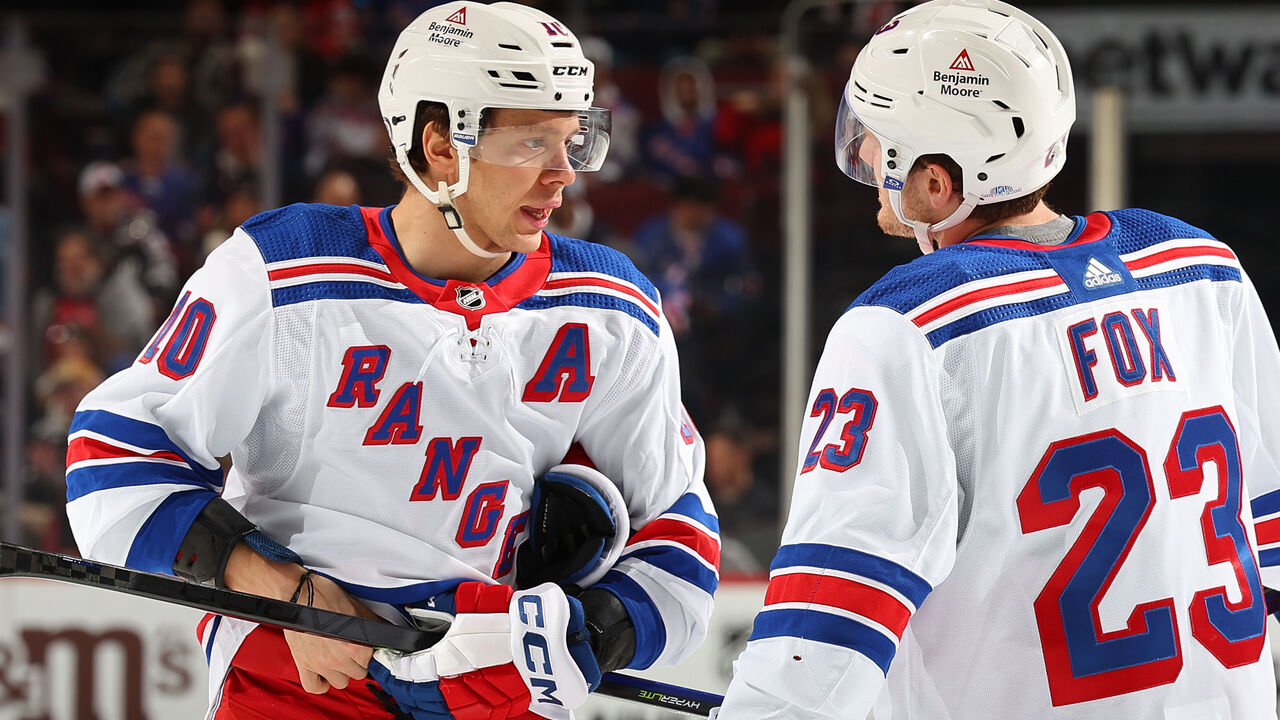
Despite rocking similar five-on-five scoring rates, the Rangers and Hurricanes generate offense differently. Carolina's a forecheck team that dominates territorially, and New York's a rush team that only needs a few grade A scoring chances to convert thanks to its sharpshooters.
Then there's special teams. Both clubs ranked in the top five in power-play scoring and penalty killing during the regular season, then continued to execute at a high level in Round 1. But does one team have a minor edge?
Yes - and it's the Rangers. This was the case before Game 1, and New York delivered in the opener by scoring early in two power-play opportunities.
A few factors tilt the scales. The Rangers have the better goalie (Frederik Andersen is playing well, but Igor Shesterkin's the superior netminder). Carolina's without one of its best penalty killers, injured defenseman Brett Pesce, until at least Game 3. And New York scored eight power-play goals in seven games the last time these teams faced off in the playoffs (2022 second round).
That final stat may seem a bit flimsy given the two-year gap and the fact that an overmatched Antti Raanta was in Carolina's net. However, New York's top unit has just one new member in Vincent Trocheck. He, Mika Zibanejad, Artemi Panarin, Chris Kreider, and Adam Fox look primed to terrorize the Canes once again.
Carolina Hurricanes
Can Svechnikov keep asserting himself?
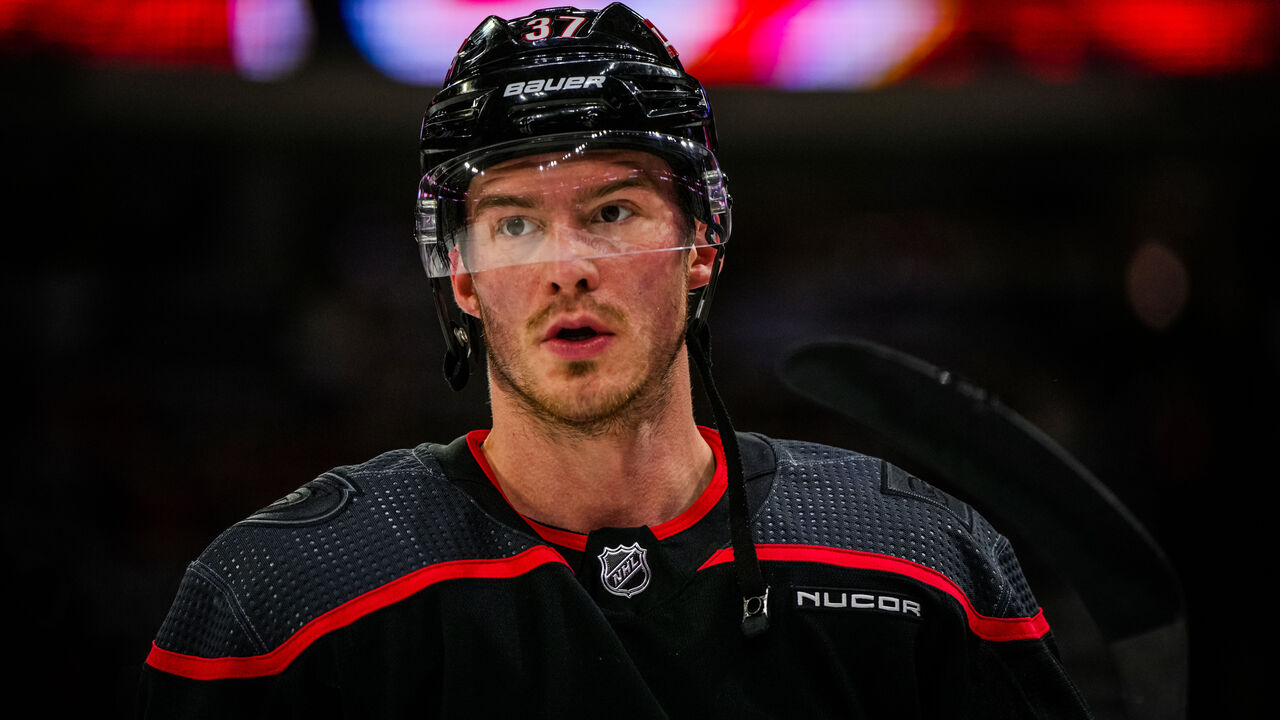
The Hurricanes acquired Jake Guentzel ahead of the trade deadline to inject finishing ability into a forward group primarily consisting of playmakers and disrupters. To go on a deep playoff run, Carolina needs a buzzing Guentzel.
Equally important but not mentioned enough: Core members Sebastian Aho, Seth Jarvis, and Andrei Svechnikov must also drive the attack. Svechnikov, who missed the entirety of last season's run to the Eastern Conference Final due to injury, is especially important. He's a walking X-factor.
And, to Svechnikov's credit, he dominated in Round 1 against the Islanders.
The 24-year-old recorded a goal and four assists while finishing first on the Canes in shots on goal (15), tied for second in shot attempts (30), and second in hits (15). Built like a truck and welcoming of the emotional and physical chaos of playoff hockey, he put on a clinic for power forwards.
"It felt like every time he was on the ice he was a force. ... I thought he was our best player, really, throughout the five games," head coach Rod Brind'Amour said to sum up Svechnikov's performance.

Vancouver Canucks
Is best yet to come for Pettersson, Hughes?
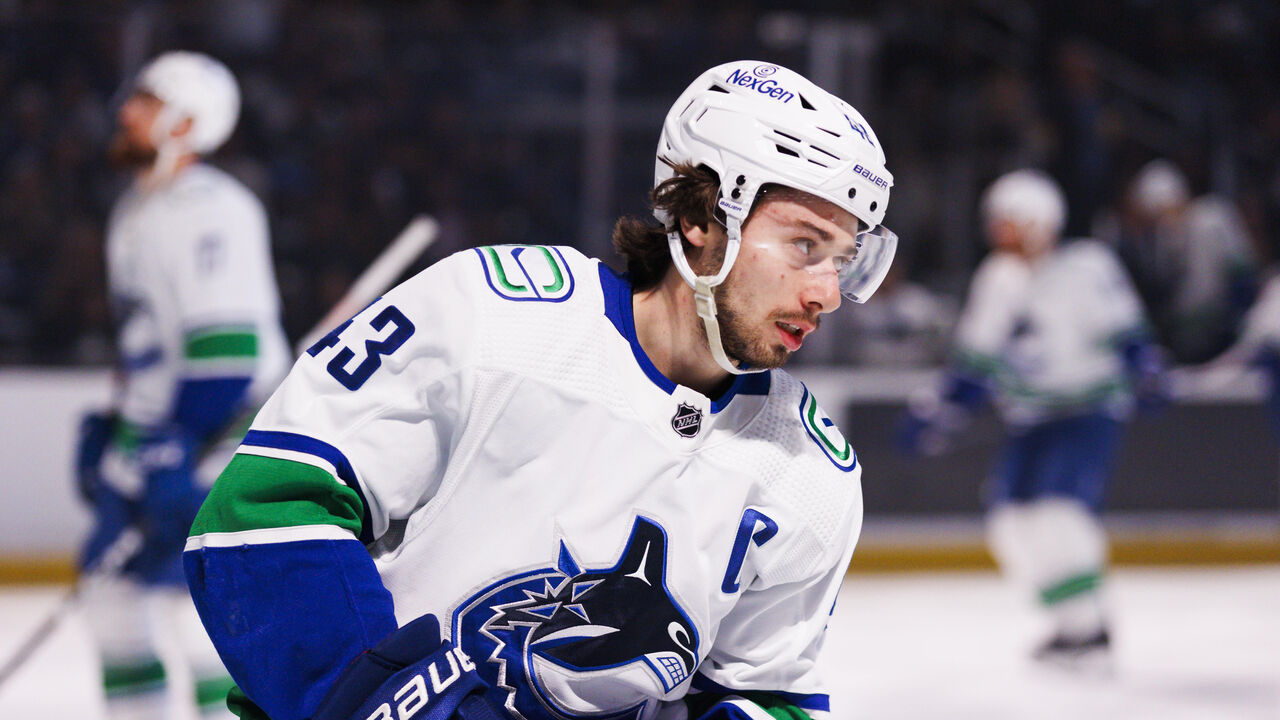
Elias Pettersson's low shot count in the opening round - he put eight of 27 attempts on net - curbed his impact against the Predators. A bobbled pass in the waning minutes of a scoreless Game 6 reaffirmed that his timing and rhythm were off.
To Pettersson's credit, he prevented a clearance later in the shift, slickly sidestepped a check, and helped set up Pius Suter's series-clinching snipe. He had three assists in the matchup, but his goal drought reached nine games. Brock Boeser and J.T. Miller were more noticeable, opportunistic, and influential.
Nashville targeted Quinn Hughes for physical punishment, catching Vancouver's captain with a team-high 20 hits. He still produced five assists and set up Boeser's clutch Game 4 equalizer with a nifty puck retrieval and dangle. To beat the Oilers, Vancouver needs Hughes to dominate possession.
Three Canucks goalies won games in Round 1. They advanced when rookie Arturs Silovs manifested a 28-save shutout. No matter who's in net, dynamic performances from every star would make another triumph possible.
Edmonton Oilers
Will they break even at even strength?
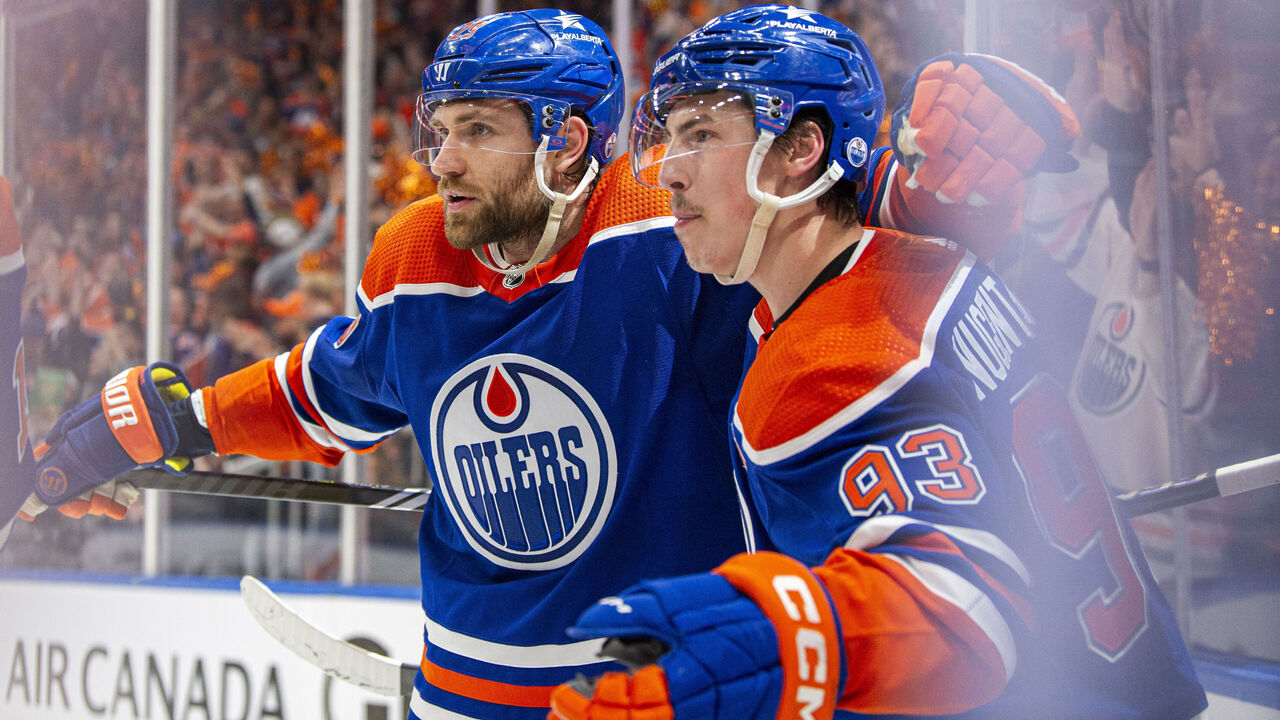
Outrageously proficient on the power play, the Oilers also killed each penalty they took against the Kings. Over five games, the goal count was 13-13 at even strength and favored Edmonton 9-0 on special teams.
Connor McDavid versus a shorthanded defense is an unfair fight. Lethal shooters and an expert puck-tipper, Zach Hyman, surround the greatest passer in the sport. Edmonton's power play might cool, but there's no reason to think it'll crater. That means the Oilers just need to level the five-on-five battle.
The Hyman-McDavid-Adam Henrique top line heavily outchanced the Kings, while Leon Draisaitl, Evander Kane, and Dylan Holloway buried multiple goals. Defensively, the Oilers got burned by a few bad bounces and quick strikes off the counterattack, but Stuart Skinner (.910 save percentage, one shutout) enjoyed his best postseason round. So far, what's not to like?

Dallas Stars
Can they stop Colorado's whirlwind attack?
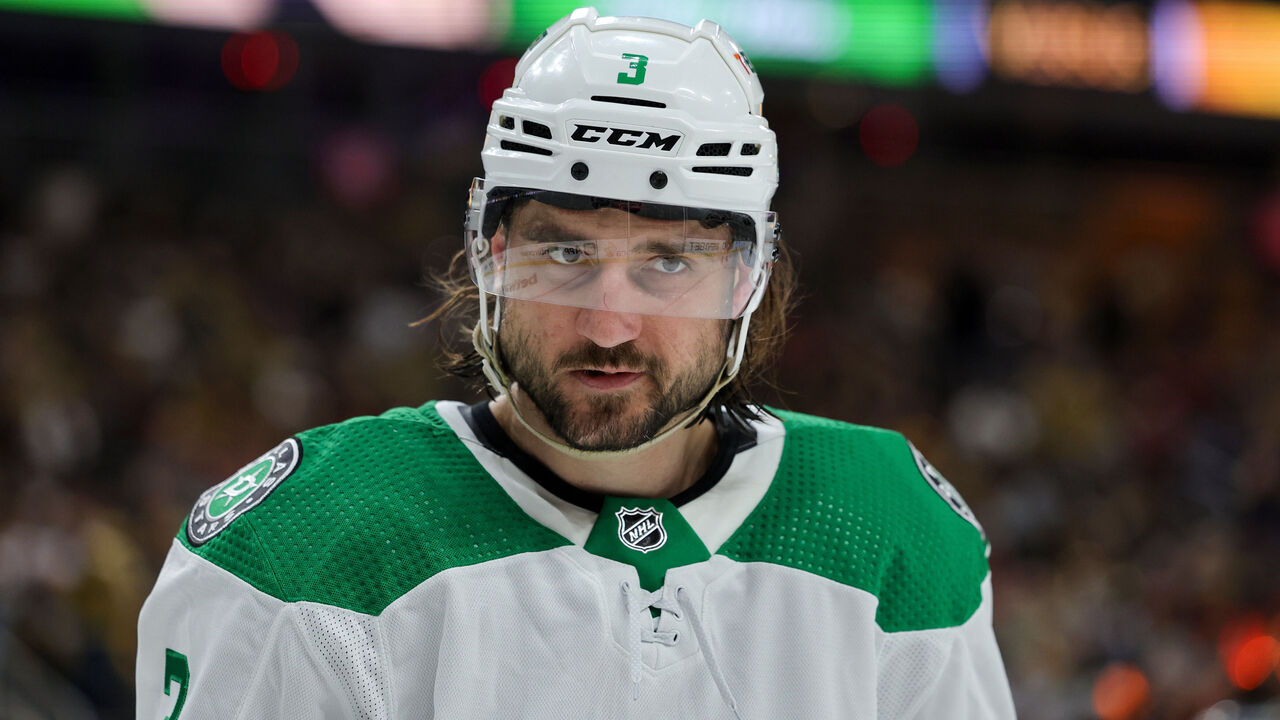
The Stars rallied to eliminate the Golden Knights while essentially deploying five defensemen. The No. 6 option, Nils Lundkvist, averaged 2:50 of ice time in Games 3-7. He was caught flat-footed and beaten to the net for an easy tap-in on Vegas' only goal of the rubber match.
To pick up the slack, Miro Heiskanen, Thomas Harley, Esa Lindell, and Chris Tanev shouldered major minutes. Tanev, a crucial trade addition, crushed his Stars playoff debut by helping them own 66.7% of high-danger shot attempts and 100% of goals (5-0) in his five-on-five shifts, per Natural Stat Trick. He neutralizes offense and instills calm.
Those qualities will be tested by the Avalanche, whose relentless pressure, applied on the forecheck and in transition, created crises for Vezina Trophy shoo-in Connor Hellebuyck. The Avs' 28 goals against the Jets were an NHL high through five playoff games since 1995, per Stathead. Eight Colorado skaters tallied a point per game or better. To avoid being blitzed, the Stars' go-to defensemen can't get fatigued or rattled.
Colorado Avalanche
Will heavy workload tax Georgiev?
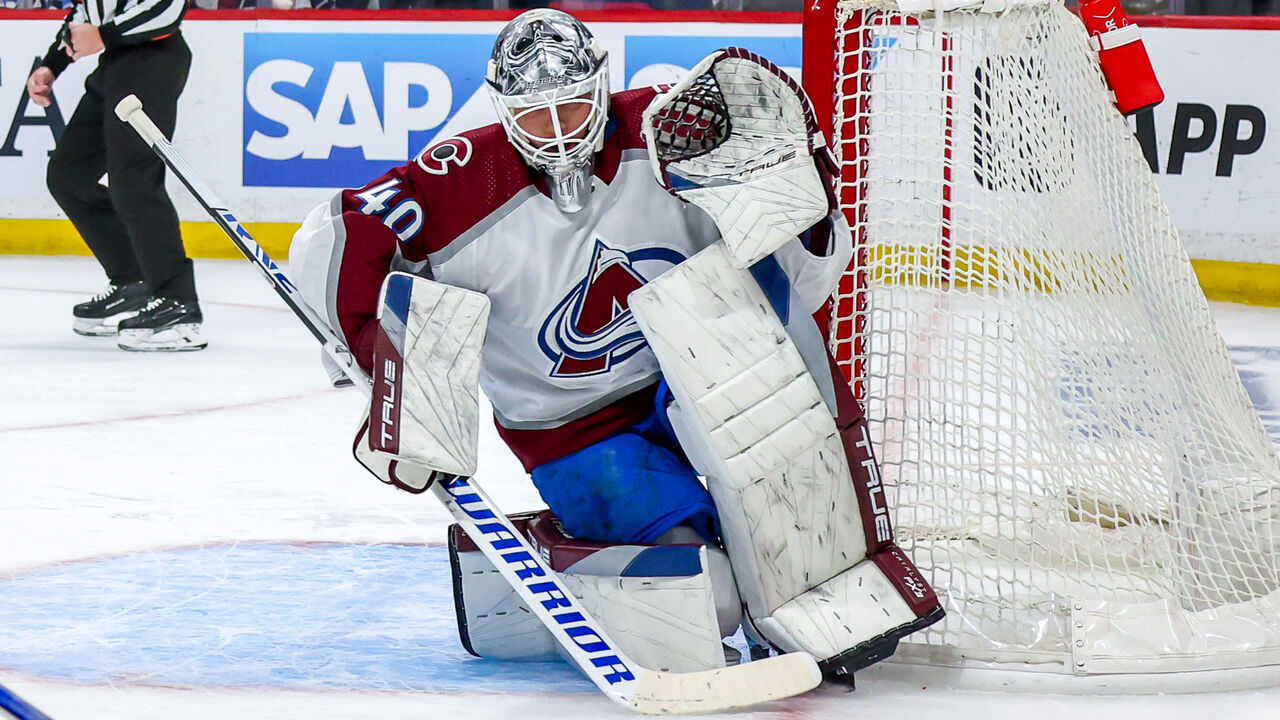
Skeptics argue that Alexandar Georgiev led all goalies in wins this season because his team is a wagon.
Georgiev's .897 save percentage across 62 starts was a career low. Yet he won 38 games while receiving the most offensive goal support in the NHL, relaxing as the Avalanche potted 3.61 per 60 minutes.
That sounds luxurious, but Georgiev deserves credit for becoming a workhorse. Before joining Colorado, he averaged 26 appearances over five years as the backup to Rangers royalty - first Henrik Lundqvist, then Shesterkin. Over the past two seasons, only Hellebuyck and Juuse Saros spent more time in the crease than Georgiev. Counting the playoffs, he might have to cross the 82-game threshold to raise the Cup.
Georgiev shook off a disastrous beginning to the Jets series to record a .932 denial rate in Games 2-5. His next opponent, Dallas, creates and converts a lot of prime scoring opportunities. With another strong showing, Georgiev could dispel the notion that he's Colorado's most exploitable - and maybe only - weakness.
Copyright © 2024 Score Media Ventures Inc. All rights reserved. Certain content reproduced under license.